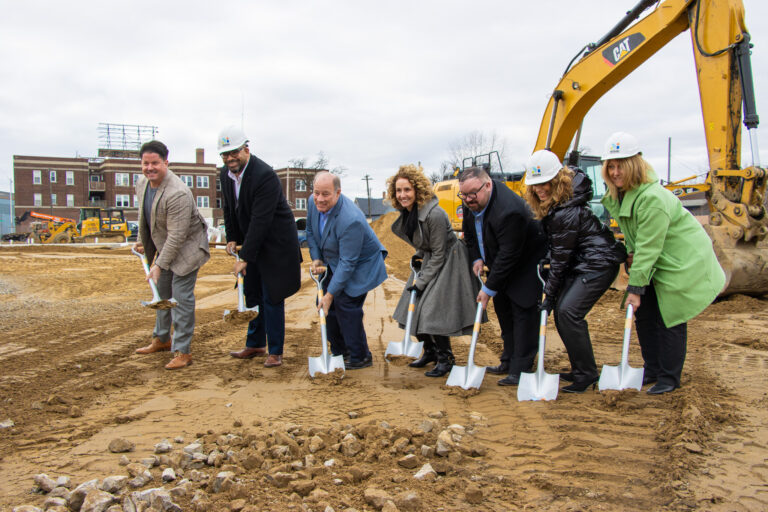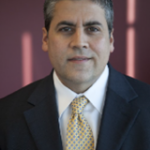
- Kim Kisner
- Community
- 02/06/2024
Affordable Housing, Wealth Building, and Financial Literacy Are Key Levers

The MiSide Community Impact Network’s mission is to ensure that children, individuals, families, and communities have access to great healthcare, quality education, a comfortable home, and the money they need to build the life they desire. As such, their work is steeped in sustainability.
SBN Detroit interviewed Timothy Thorland, executive director of MiHousing, and
Hector Hernandez, executive director of MiWealth, to find out more.
Q: What is the impetus behind the MiSide Community Impact Network?

Thorland: It was formed (in late 2023) by two human service organizations in metro Detroit – Southwest Solutions and Development Centers Inc., which recognized that by combining they could offer a broader range of services to more low-to-moderate income families than either could alone.
More importantly, both organizations understood that the families who seek them out for support are frequently facing multiple challenges and that a single organization would not be able to meet all of those needs.
The service array now represented under MiSide can help with many of the most frequent challenges our families face – access to quality behavioral and physical health care, finding safe affordable housing, enrolling children in safe and affordable childcare, and gaining the skills to earn a good living.
Q: MiSide’s mission is to provide individuals and communities with equitable access to health, education, self-sufficiency, and wealth accumulation opportunities. How do you think this mission plays out in terms of sustainability in the communities where you do your work?
Thorland: One of the greatest predictors of sustainability for a community is stability in the community, and stability can’t happen for families unless the components outlined in MiSide’s mission are accessible to them.
The way we’ve seen sustainable community improvements play out in our neighborhoods is through concentrated and coordinated services that start to transform a handful of families who reside in the area. As their circumstances improve, they stay in their neighborhood only if the environment around them begins to improve as well, and as long as they can continue to find what they need near them.
So, working as part of the community to improve the housing stock, create anchors of affordability, avenues for homeownership, and wealth building must go hand-in-hand with the other services and supports we provide. With this collective approach, over time, whole neighborhoods and communities start to transform.
Q: How does MiHousing lift the economy and facilitate equity and wealth building?
Thorland: Over the past 25 years, MiSide Housing and its subsidiaries have developed more than 800 rental housing units, rehabilitated more than 1,000 single-family homes for homeownership, built and sold more than 100 homes for homeownership, facilitated scores of minor home repairs, developed more than 150,000 square feet of neighborhood office and commercial space, and originated more than 300 first or second mortgages, and beautified or improved more than 100 vacant land parcels – all together well more than $325 million of production.
While our work has been predominantly in the affordable rental market, since 2011 we have been more actively engaged in single-family home ownership: First in the foreclosure/real-estate-owned market as a purchaser/rehabber/reseller of abandoned homes throughout Southeast Michigan; and, second, as a facilitator of down-payment assistance mortgages in partnership with NeighborWorks and Wells Fargo.
While all of these programs contributed mightily in their own way to the economy, equity and wealth building most notably would be our third example. We have facilitated the transition of 53 tenants to becoming homeowners providing transactional guidance, support, homebuyer education, and a mortgage to help them achieve the dream of homeownership.
Q: There is a project in the East Chadsey Condon neighborhood that just broke ground. What is the desired impact there?
Thorland: The production of affordable housing is one of the top priorities in the state. In the Michigan Statewide Housing Plan released in 2022, the plan identified a need for 75,000 additional housing units statewide – 39,000 of those identified as affordable housing units.
More specifically, the development of affordable housing in the East Chadsey Condon (ECC) neighborhood is important because growth, expansion, and housing costs in the downtown and near-western downtown markets have risen dramatically and continue to push westward.
In the ECC market area, more than one-half of all households have a total household income of less than 50% of the area median income. As many as 48% of renter households are considered ‘cost-burdened’ meaning they pay more than 30% of their income toward housing expenses. Nearly 40% are at or below 30% of AMI. The explosive growth emanating out of the Corktown area will only fuel additional demand and increases in housing costs.
MiSide is committed to encouraging the revitalization of ECC as a neighborhood of opportunity. The creation and provision of affordable rental housing in ECC is just one important component of our overall community development effort.
Through internal programs and resources, as well as nine partnership organizations, we aim to improve the overall quality of life for the neighborhood – positive impacts that encompass health (physical, behavioral, and child development), wealth (workforce development, homeownership education, financial education), housing (multi- and single-family, affordable and market, rental and ownership), and general community development (home improvement, beautification, community programs, parks, and green space, energy, and infrastructure).
Q: How does the work you are doing through MiHousing impact businesses in Southeast Michigan?
Thorland: While MiSide Housing is primarily devoted to the promotion of affordable housing and community development in Southwest Detroit, our work – often in partnership with others – reaches across the city of Detroit and inner ring suburbs.
On the front end, we have 300 units under development and/or construction. Our work with the traditional cadre of real estate development industry professionals and general and subcontractors includes scores of companies contributing to the stability of the industry.
On the back end, we own and operate more than 600 units. All of these units/projects, of course, have multiple productive relationships with businesses and suppliers in the operation and maintenance of the units.
Additionally, while about 1/3 of our tenant population receives rental assistance by virtue of their prior homelessness or disability more than two-thirds of our tenants maintain their housing expenses through regular gainful employment.
We believe the affordability and stability of these tenants’ housing situation contribute to them being a more productive and stable employee.
Q: How does the MiWealth program work?

Hernandez: MiWealth offers integrated programming that helps promote and preserve homeownership and advance financial literacy in the community.
We can help people make good economic choices, avoid harmful debt and predatory lenders, gain wealth and the dream of homeownership, access income support, and achieve their educational goals like a GED.
Our extensive workforce development offerings target both adults and youth and are fortified with robust barrier mitigation services, which enhance our outcomes.
Q: How do you think this program helps the economy?
Hernandez: We offer Detroit residents and Veterans a variety of workforce development programs to help individuals acquire the education, skills, training, and job opportunities to secure sustainable employment. These programs are designed to address the particular needs and barriers of individuals seeking work and greater economic security and success.
We operate a Detroit at Work Career Center that focuses on the needs of local employers, and we work as a liaison to meet their workforce needs. Many of our clients have significant skills gaps, and we partner with them to ensure they achieve their employment goals.
Q: How does the work you are doing within this program impact businesses in Southeast Michigan?
Hernandez: We supply prospective employers with work-ready candidates in a myriad of in-demand employment sectors, including skilled trades apprentice tracts such as electrical, plumbing, HVAC, and construction. Other sectors include commercial driver’s licenses, medical, and other healthcare fields.
Q: How can businesses get involved?
Thorland: Work directly with our Detroit at Work Career Center to register their workforce needs and partner with a team of on-site experts to help them fill their vacancies.
Donate or volunteer online at miside.org.
Be sure to subscribe to our newsletter for regular updates on sustainable business practices in and around Detroit.
Kim Kisner
- All
- Business
- Community
- Education
- Events

Unique Monique Scented Candles, a Detroit-based business founded by Monique Bounds., aims to produce candles and household products with clean ingredients and local supply chains. What began as a personal hobby during college has evolved into a full-time venture producing coconut oil and soy-based candles made with essential oils and locally sourced materials. SBN Detroit interviewed Bounds about launching a sustainable product line, sourcing challenges in Michigan, and...

Eastern Market Partnership, in collaboration with the City of Detroit’s Office of Sustainability Urban Agriculture Division, has announced $240,000 in grant funding to support Detroit-based farmers and farmer collectives. The grants will advance food access, climate education, sustainable land use, and economic opportunity, with priority given to Black- and Indigenous-led farms, youth-led initiatives, and projects rooted in historically disinvested neighborhoods. The recipients – ranging from cooperatives and community...

Citizen Robotics is a Detroit-based nonprofit that advances the use of robotics and digital manufacturing in residential construction, focusing on improving productivity, sustainability, and long-term affordability. Best known for its early work in 3D-printed housing, it explores how alternative construction methods and new financial models can reduce material waste, lower lifetime operating costs, and enhance the resilience of homes. SBN Detroit interviewed Tom Woodman, founder and president of...







